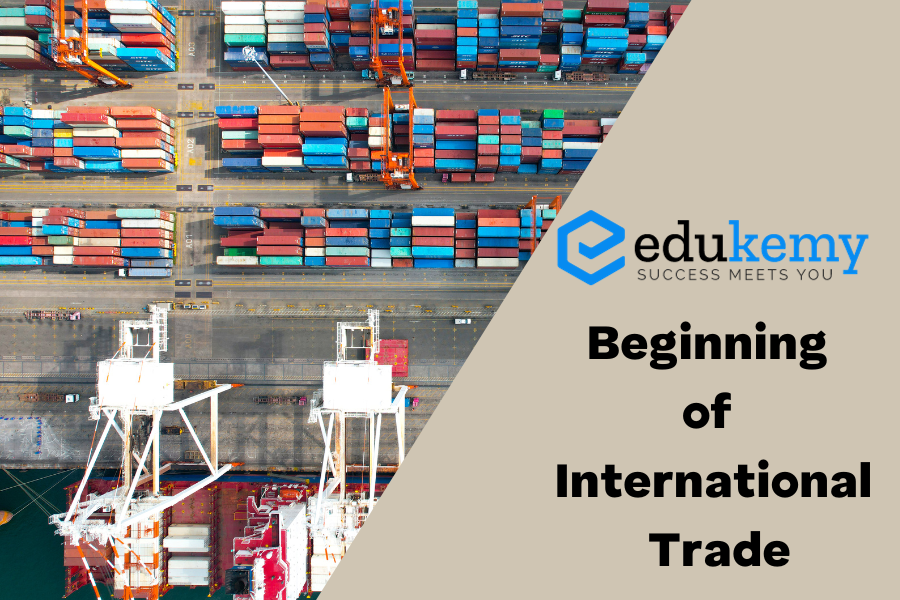
The voyages of discovery at the end of the 15th century marked the beginning of the Modern Age in Europe and had a profound impact on international trade and the global economy. These voyages resulted in the exploration and colonization of new lands in Asia and the Americas by European powers and laid the groundwork for the era of colonialism. Here’s an overview of these developments:
- Italy’s Trade Monopoly: Italy was the first European region to establish a virtual monopoly in trade with the rest of the world. Italian city-states like Venice and Genoa were major trading hubs, connecting Europe with the markets of Asia and Africa. Their control of trade routes and access to valuable goods made them economic powerhouses.
- Discovery of New Lands: At the end of the 15th century, European explorers, sponsored by various countries, set out on voyages to discover new lands. Christopher Columbus’s famous journey in 1492, funded by Spain, resulted in the discovery of the Americas. Similarly, Portuguese explorers, such as Vasco da Gama and Ferdinand Magellan, charted new maritime routes to Asia.
- Economic Impact: The discovery of new lands and the subsequent colonization had a transformative impact on the economies of many European nations. These regions were rich in valuable resources, including precious metals, spices, and agricultural products. The influx of these goods into Europe triggered significant economic changes and trade expansion.
- Colonialism Begins: The exploration and colonization of new territories marked the beginning of the colonial era. Early colonial powers included Portugal and Spain, which established vast colonial empires in Asia, Africa, and the Americas. They were soon joined by other European nations, particularly the Dutch, British, and French, which also sought to establish and expand their colonial holdings.
These developments fundamentally altered the global economic landscape and set the stage for the age of exploration, colonialism, and international trade that would define much of the modern era. Europe’s engagement with the wider world during this period had far-reaching consequences for global history, trade, and culture.
Contents
- 1 Frequently Asked Questions (FAQs) about the Beginning of International Trade
- 1.1 1. FAQ: What is International Trade?
- 1.2 2. FAQ: What are the main drivers of International Trade?
- 1.3 3. FAQ: How do countries benefit from participating in International Trade?
- 1.4 4. FAQ: What are the challenges faced in the Beginning of International Trade?
- 1.5 5. FAQ: How does International Trade impact a country’s economy?
- 2 In case you still have your doubts, contact us on 9811333901.
Frequently Asked Questions (FAQs) about the Beginning of International Trade
1. FAQ: What is International Trade?
Answer: International trade refers to the exchange of goods and services between countries. It allows nations to access products and resources that may not be readily available domestically, fostering economic growth and specialization.
2. FAQ: What are the main drivers of International Trade?
Answer: International trade is driven by factors such as comparative advantage, where countries specialize in producing goods they can efficiently make, and differences in resource endowments. Additionally, factors like lower production costs, market demand, and technological advancements contribute to the growth of international trade.
3. FAQ: How do countries benefit from participating in International Trade?
Answer: Countries benefit from international trade by gaining access to a wider variety of goods and services, enjoying cost efficiencies through specialization, stimulating economic growth, creating employment opportunities, and fostering innovation through exposure to new technologies and ideas.
4. FAQ: What are the challenges faced in the Beginning of International Trade?
Answer: Challenges in the early stages of international trade may include establishing trade agreements, overcoming cultural and language barriers, navigating differing legal and regulatory frameworks, and addressing protectionist policies that limit market access. These challenges require effective diplomacy and negotiation.
5. FAQ: How does International Trade impact a country’s economy?
Answer: International trade can significantly impact a country’s economy by influencing factors such as GDP growth, employment rates, inflation, and overall economic stability. It provides opportunities for economic diversification, leading to enhanced resilience and competitiveness on the global stage.
In case you still have your doubts, contact us on 9811333901.
For UPSC Prelims Resources, Click here
For Daily Updates and Study Material:
Join our Telegram Channel – Edukemy for IAS
- 1. Learn through Videos – here
- 2. Be Exam Ready by Practicing Daily MCQs – here
- 3. Daily Newsletter – Get all your Current Affairs Covered – here
- 4. Mains Answer Writing Practice – here

